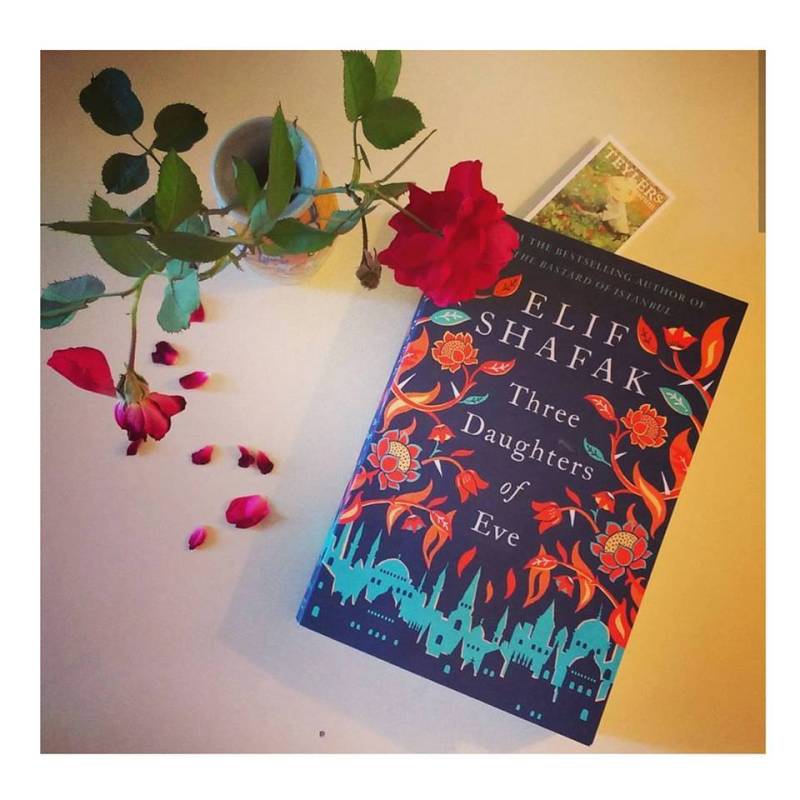A friend recently forced me into reading Three Daughter of Eve, saying that the main character totally reminds her of me.
The story line of this book revolves around Peri, a wealthy Turkish housewife who has always been confused when it comes to matters related to religion. The story takes place in the present but also takes the readers back to Peri’s childhood and then to her late teenage when she was at Oxford.
The first section of the book gives several historical evidences, including those about wars. For a person like me who barely has any interest in warfare or its history, it got a little annoying but even then, I believe that the first section plays an important part in the development of the story since it gives the reader a background on how ever since her childhood, Peri has juggled between being too religious like her mother or being too secular like her father.
Peri was an ordinary human being who wished to love God for the love of God and not for the promise of rewards or because of the fear instilled in our minds ever since our childhoods. She was a teenager who thought and talked about death way too casually, for someone her age. Being someone who is surrounded by people who are either extremely religious or not at all, I felt related to Peri and could easily put myself in her shoes.
The book blurb talks about three characters of the book referring to them as “The Sinner, The Believer and The Confused”. These were three girls studying together at Oxford, all being totally different from each other. Since this was the highlight of the blurb, I assumed that the book would have a large portion of it dedicated to the time these girls spent together. However, that part was not as elaborate as I expected it to be. The book also continuously mentions a scandal involving Oxford’s prestigious teacher who gave challenging seminars on “God”. Again, the scandal wasn’t as detailed as I thought it would be, leading to an almost abrupt ending of the book.
Nonetheless, the book is an intelligent and fierce piece of fiction. You will fall in love with its words that will linger in your mind for several months.
“There is something about love that resembles faith. It's a kind of blind trust, isn't it? The sweetest euphoria. The magic of connecting with a being beyond our limited, familiar selves. But if get carried away by love-or by faith- it turns into a dogma, a fixation. The sweetness becomes sour. We suffer in the hands of the gods that we ourselves created.”
“An emptiness inside her chest, so profound and so permanent that she imagined it could be compared only with the absence of God. Yes, perhaps that was it. She carried the absence of God within. No wonder it felt so heavy.”
Unlike Elif’s last book that I read (The Forty Rules of Love), where the writer sounds like an adamant believer of true love, this book ends with the main character admitting that what she mistook as true love was a mere temporary infatuation with the image of a specific person that she had created in her own head.
As I turned pages, Elif’s words drew out heartfelt ponderance. Elif helped me clear out several of my thoughts but at the same time, gave me infinite new complicated theological questions. If you pay attention to the details of the conversations in the book, there’s no way you cannot fall in love with it. I am amazed at how Elif was able to talk about such sensitive topics in this mind boggling manner. She has penned down the thoughts we all are afraid to talk about aloud or even to ourselves. It’s a must read.
[Image credits: ghadaqureshi on Insta]






